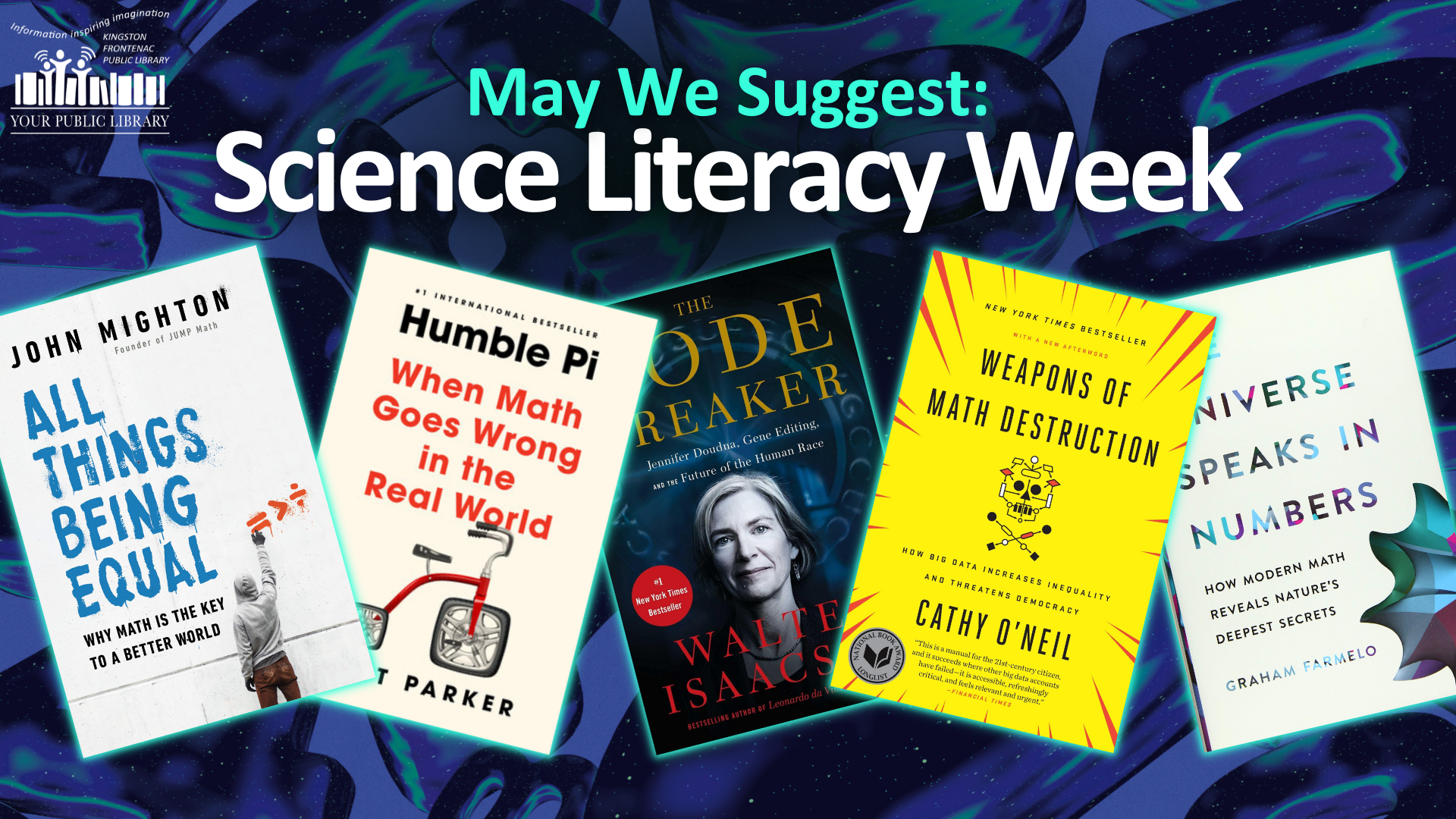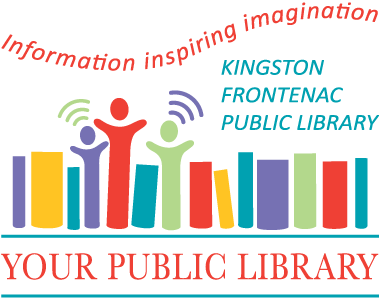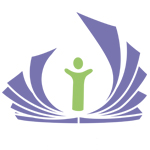
Science Literacy Week celebrates the diversity of Canadian science and its culture. This year's theme is mathematics, the language of science. Explore mathematics, its modern applications and how this ancient science is the origin of all the technology we know and use today with these suggestions from KFPL staff and the Queen's University Department of Mathematics and Statistics.
The Code Breaker by Walter Isaacson
This NY Times bestseller follows Jennifer Doudna from precocious childhood to her and her collaborators' invention of the CRISPR tool for editing DNA and her receipt of the 2020 Nobel Prize. As Doudna discovers, the capacity to edit genetic code (as with lifesaving coronavirus vaccines) is the first step in a scientific revolution that significant moral questions will accompany.
Humble Pi by Matt Parker
Exploring and explaining a litany of glitches, near misses, and mathematical mishaps involving the internet, big data, elections, street signs, lotteries, the Roman Empire, and an Olympic team, Matt Parker uncovers the bizarre ways math trips us up and what this reveals about its important place in our world.
The Math of Life and Death by Kit Yates
Any inquisitive and open-minded reader can enjoy this valuable primer on using and abusing numbers in the everyday world.
Math With Bad Drawings by Ben Orlin
A hilarious reeducation in mathematics, full of joy, jokes, and stick figures, that sheds light on the countless practical and wonderful ways math structures and shapes our world.
All Things Being Equal by John Mighton
Mighton, author of The Myth of Ability, argues that math study is an ideal starting point to break down social inequality and empower individuals to build a smarter, kinder, more equitable world.
Weapons of Math Destruction by Cathy O'Neil
Winner of the Euler book prize and long-listed for the National Book Award, Weapons of Math Destruction illustrates how an ever-increasing amount of decisions affecting our lives are decided using machines and algorithms. Cathy O'Neil argues that many of these algorithms reinforce discrimination and undermine our democracies.
The Universe Speaks in Numbers: How Modern Math Reveals Nature's Deepest Secrets by Graham Farmelo
Award-winning science writer Farmelo argues that the blossoming relationship between modern mathematics and quantum physics could revolutionize our understanding of reality. Taking the reader from Newton to Einstein to string theory and beyond, he presents a very readable overview of the current research that is reshaping the work of both fields.
Shape by Jordan Ellenberg
Geometry doesn't just measure the world, it explains it. Shape shows us how.
How Not to Be Wrong by Jordan Ellenberg
A math-world superstar unveils the hidden beauty and logic of the world and puts its power in our hands.
Foundation (Trilogy) by Isaac Asimov
In the waning days of a future Galactic Empire, mathematician Hari Seldon spends his life developing a theory of psychohistory, a new and effective mathematical sociology.
99 Variations on a Proof by Philip Ording
An exploration of mathematical style through 99 different proofs of the same theorem.
Infinite Powers: How Calculus Reveals the Secrets of the Universe by Steven H. Strogatz
Though many of us were scared away from this essential, engrossing subject in high school and college, Steven Strogatz's brilliantly creative, down-to-earth history shows that calculus is not about complexity; it's about simplicity.
Hidden Figures by Margot Lee Shetterly
The phenomenal true story of the Black female mathematicians at NASA whose calculations helped fuel some of America's most outstanding achievements in space.
Issac Newton by James Gleick
The story of the scientist who, above all others, embodied humanity’s quest to unveil the hidden forces that constitute the physical world.
Logicomix by Apostolos K. Doxiades, Christos H. Papadimitriou, Alekos Papadatos
This innovative, dramatic graphic novel recounts the spiritual odyssey of philosopher Bertrand Russell. In his agonized search for absolute truth, Russell crosses paths with legendary thinkers and finds a passionate student in the great Ludwig Wittgenstein.
Is God a Mathematician? by Mario Livio
From ancient times, scientists and philosophers have marvelled at how such a seemingly abstract discipline could perfectly explain the natural world. Mathematics has often made predictions about subatomic particles or cosmic phenomena that were unknown at the time but later were proven true. Is mathematics ultimately invented or discovered?
A Beautiful Mind by Sylvia Nasar
The powerful, dramatic biography of math genius John Nash, who overcame serious mental illness and schizophrenia to win the Nobel Prize.
The Man Who Knew Infinity (film)
The story of the life and academic career of the pioneer Indian mathematician Srinivasa Ramanujan and his friendship with his mentor, Professor G.H. Hardy.






















